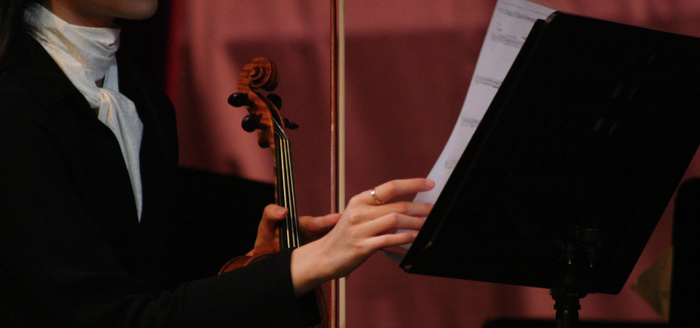The Melanin Monologues: The dynamic and emotional production carries an important message
This vibrant show is a mosaic of the Black experience – personal stories coloured by the same pigment

The word ‘melanin’ evokes a clinical – somewhat detached – image in the mind. Joy Adeogun’s production of The Melanin Monologues is anything but this. This original choreopoem showcases the pride and pain of the Black experience, providing its audience with an intimate insight that is not always a positive one.
The play follows four strangers with unique stories who are united in their melanin. Finding themselves in the same room, they share the joys and difficulties that often come with their Blackness. The play covers a lot of ground; comic jabs at racial stereotypes quickly morph into commentaries on heavier topics such as medical racism. At its core, however, it irons out the nuances of the Black experience and does so on the terms of those who know it best.
Notably, Blackness is expressed beyond spoken word. The incorporation of abstract movement (as devised by Temitope Idowu) adds dimension to the narratives shared, and explores the play’s major themes in a way that cannot be done through words. Yet, it also supplements that being said on stage. Paired with the actors’ feel-good singing and dancing, it is rare to find a moment in this play that is not utterly dynamic.
“It is rare to find a moment in this play that is not utterly dynamic”
Some of the play’s best moments come from Kailan Hanson, whose approach to his character is relaxed without compromising depth. Hanson manages to be especially captivating when in the spotlight. Mei Alozie brings a particularly infectious energy onto the stage, giving the show a momentum which demands attention from its audience. Monique Knight and Oyinkan Akinbolagbe follow a similar suit, managing to bounce off other characters without detracting from their individual stories.
These are not monologues in the conventional sense. They are individual stories interwoven with one another, with characters swiftly transitioning between celebrating their personal experiences and sharing their vulnerabilities. Such transitions become an expected pattern for the audience as the play progresses, but they never fail to be seamless. If you’re a crier, expect your tears of laughter to turn quickly into ones of sorrow.
In the same vein, the characters seem to equally confide in and question each other. Performative activism has plagued us with generalisations about Blackness; this production is a remedy. It presents the Black experience as common ground for its characters, but by no means a monolithic one. And in a world where Black culture has defined much of popular culture, it does not shy away from more difficult conversations that are often overlooked.
This vibrant show is a mosaic of the Black experience – personal stories coloured by the same pigment. A fragmented script mothers a fuller picture of Blackness devised by more than one hand. Whilst beautiful at times, such a picture may not always be a comfortable one for the audience to look upon – but it is nonetheless worthy of our attention. So, if you’re looking to understand the Black experience beyond Instagram infographics and AAVE, The Melanin Monologues may be a good place to start.
 News / Eight Cambridge researchers awarded €17m in ERC research grants27 December 2025
News / Eight Cambridge researchers awarded €17m in ERC research grants27 December 2025 News / Downing investigates ‘mysterious’ underground burial vault 29 December 2025
News / Downing investigates ‘mysterious’ underground burial vault 29 December 2025 News / News in Brief: carols, card games, and canine calamities28 December 2025
News / News in Brief: carols, card games, and canine calamities28 December 2025 Sport / Hard work, heartbreak and hope: international gymnast Maddie Marshall’s journey 29 December 2025
Sport / Hard work, heartbreak and hope: international gymnast Maddie Marshall’s journey 29 December 2025 Interviews / Meet Juan Michel, Cambridge’s multilingual musician29 December 2025
Interviews / Meet Juan Michel, Cambridge’s multilingual musician29 December 2025







